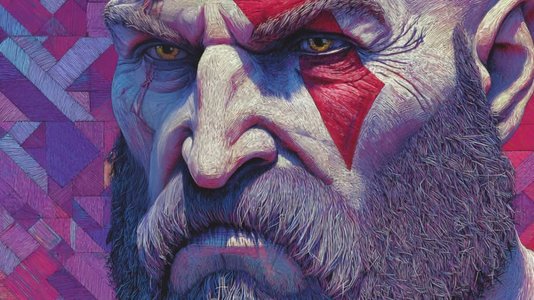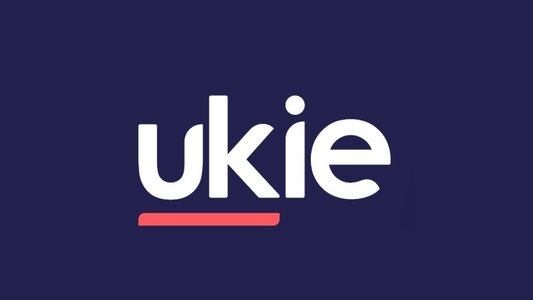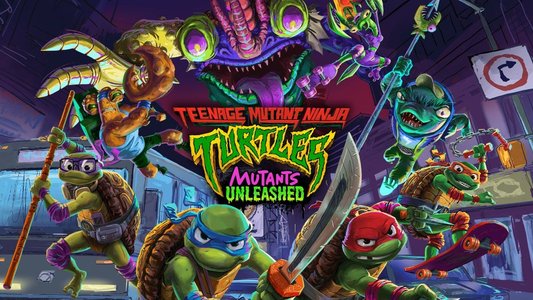[In this opinion piece, reprinted with permission from his blog, 2D Boy's Ron Carmel examines the health of Microsoft's Xbox Live Arcade marketplace, and what can be done to make it more useful for developers and players.] I recently read a Gamasutra article in which XBLA Portfolio Director Chris Charla explains that "With XBLA, we've consciously developed a curated portfolio" and that "The net result is that our customers know that every XBLA game is measured to the same bar – that the quality of games that indies like Signal Studios [Toy Soldiers] or Haunted Temple Studios [Skulls of the Shogun] bring us continues to get better and better, so the bar is always getting higher to get on the platform. I think that's ultimately beneficial to our customers. We want the best, most innovative, coolest games on XBLA." I think striving to have the best games is very important for the long term health of a platform. The data I've collected, however, suggests that XBLA's health is actually flagging. The elements to which Chris attributes XBLA's ongoing improvement (a curated portfolio and a rising quality bar) are some of the elements that I believe are the biggest obstacles for XBLA's continued prosperity. To be clear, I'm not finding fault with Chris. XBLA's take on content selection has been this way long before Chris joined as Portfolio Manager. I don't even know if it's within the Portfolio Manager's jurisdiction to change how content selection is handled, much less push for the changes that I will discuss later in this article. I'm not finding fault with anyone else at Microsoft, either. Their content selection approach made a lot of sense when XBLA was launched 7 years ago. In the early days of digital distribution, there wasn't the abundance of high quality downloadable games that we have now, so weeding out the chaff was critical to creating a positive image for digital distribution in general, and XBLA in particular. But things have changed quite a bit in the last few years and it might be a good time to reexamine some of the assumptions and reasoning behind how XBLA is managed. Newer, more successful business models have emerged, the number of talented game creators leaving their jobs to do their own thing is on the rise, and both the quality and quantity of games produced by small teams has increased dramatically. I'm writing this article because I believe XBLA's popularity among independent developers peaked last year (2010) and Microsoft is not yet aware of this. I'd like to discuss why this is happening, what effect I think it will have, and what changes Microsoft can make in order to ensure that XBLA keeps getting the best possible games. As a developer I'd like to see as many healthy and prosperous digital distribution channels as possible, and I believe XBLA has not yet come close to fulfilling its potential. Are Independent Developers Really Moving Away From XBLA? Yes. In August of 2010, as part of my research for a talk I was preparing, I sent out a kind of "indie census" to about 200 independent developers. One of the questions I asked was which platforms they were developing for at the time (2010), and which platforms they had developed for in the previous two years (2008-2009). For this article, I sent out another survey to the same group, asking again which platforms they are currently (2011) developing for and which platforms they intend to develop for in 2012. It's important to note that only about half of the developers I sent the survey to responded, so while the results do have meaning and suggest certain trends, they are not definitive. I'm open (and wouldn't be shocked) to seeing data that suggests a different trend. First, let's take a look at the number of these developers making games for PS3 vs the 360 over the last few years:  As you can see, in 2008-2009 Microsoft had more developers making games for XBLA than Sony had for PSN. The gap narrowed in 2010, and this year more of these developers are making PSN games than XBLA games. Next year, the number of games this group makes for XBLA will drop again, and PSN's lead will widen as the number of developers making PSN games rise to double what it was in 2008-2009. Should Microsoft care about this relatively small group of developers? I think so. It includes the developers of many high profile, critically acclaimed, and commercially successful games. To better understand what kind of games this group of developers represent, I took the list of XBLA games from Wikipedia and looked up each game's Metascore. I then split the games into two categories: games made by the group of developers I sent the survey to, and all the rest. Of the 400 or so XBLA games listed on Wikipedia, 33 were made by this group of developers. Here are some interesting facts:
As you can see, in 2008-2009 Microsoft had more developers making games for XBLA than Sony had for PSN. The gap narrowed in 2010, and this year more of these developers are making PSN games than XBLA games. Next year, the number of games this group makes for XBLA will drop again, and PSN's lead will widen as the number of developers making PSN games rise to double what it was in 2008-2009. Should Microsoft care about this relatively small group of developers? I think so. It includes the developers of many high profile, critically acclaimed, and commercially successful games. To better understand what kind of games this group of developers represent, I took the list of XBLA games from Wikipedia and looked up each game's Metascore. I then split the games into two categories: games made by the group of developers I sent the survey to, and all the rest. Of the 400 or so XBLA games listed on Wikipedia, 33 were made by this group of developers. Here are some interesting facts:
Average Metascore for an XBLA game made by this group: 78
Average Metascore for all other XBLA games: 66
3 of the top 5 rated XBLA games were made by developers from this group
76% of XBLA games made by these developers scored 75 or higher
31% of all other XBLA games scored 75 or higher
It becomes apparent that this group of developers makes much higher quality games than the average XBLA game, and represents a significant part of XBLA's star talent. It's unlikely, therefore, that the decline in the number of XBLA developers among this group is due to Microsoft turning them down because of a rising quality bar. It's much more likely that they simply choose, for whatever reason, to no longer develop games for XBLA. You might say that quality is important but bottom line is what really counts. Microsoft, after all, is a public company and has a responsibility to its shareholders to maximize profits. So I reached out to Ryan Langley who periodically compiles sales estimates for XBLA games based on leaderboard data. Ryan was kind enough to share his estimates with me for 2010. It's okay that they're just estimates because we are only interested in a relative measure of one group of games against another, we don't care about absolute numbers. We are comparing how well games made by this group of developers sold relative to how well all the other games sold. With a reasonably sized data set, and assuming the results are dramatic enough, the fact that the estimates are imperfect shouldn't really matter. Well, the results are pretty dramatic:
Average # of copies a game developed by this group sold in 2010: 137,010
Average # of copies all other games sold in 2010: 46,281
So on average, a game from these developers sells 3 times the number copies than the average game made by all other developers.
Median # of copies a game developed by this group sold in 2010: 63,480
Median # of copies all other games sold in 2010: 13,899
The median number of copies sold by a game from these developers is 4.6 times greater than games from other developers. As a side note, if we calculated the averages and medians based on cumulative sales figures from the games' launch through the end of 2010 (instead of sales just from 2010) the multiplier for average sales is 2.4 and the multiplier for median sales is 4.2, suggesting that these developers are even more important to XBLA's bottom line now than they have been in the past. So these developers not only make much higher quality games, but they are also generate a lot more revenue for Microsoft relative to the average XBLA developer. But departure of star talent is not the only obstacle XBLA is facing right now. This survey data makes it clear that both 360 and PS3 are, at the moment, second tier platforms in terms of popularity among these developers. Windows, Mac, and iOS are getting far more attention, a very positive indicator for their longer term health. The chart below shows what percentage of developers have been making games for each platform over the last few years. It also includes reported plans for 2012:  Why Is This Happening? I asked these developers to rate the importance of certain factors in choosing which platforms they will develop games for. The most influential factor was ease of working with the platform owner, with 69% of developers rating it Very Important. In 2nd and 3rd place were the platform's install base (63%) and how well the platform's controls match the game (58%). Since ease of working with the platform owner was voted the most important factor in choosing a platform, I sent out a followup survey to ask how easy each platform owner has been to work with. Here are the results:
Why Is This Happening? I asked these developers to rate the importance of certain factors in choosing which platforms they will develop games for. The most influential factor was ease of working with the platform owner, with 69% of developers rating it Very Important. In 2nd and 3rd place were the platform's install base (63%) and how well the platform's controls match the game (58%). Since ease of working with the platform owner was voted the most important factor in choosing a platform, I sent out a followup survey to ask how easy each platform owner has been to work with. Here are the results:  Almost half of those who worked with Microsoft described the experience as "excruciating". Given that ease of working with the platform owner was voted the most important factor in choice of platforms, it becomes perfectly clear why XBLA, despite being a very strong channel with a large audience and huge earning potential, is dropping in popularity among these developers. What Does This Mean For The Future of XBLA? At the moment, people are still lining up for XBLA slots. I've heard of developers giving publishers 15% of their revenue for the privilege of using their XBLA slots (publishers who make a certain number of 360 retail games per year are allotted a number of XBLA slots to do with as they please). So XBLA is not going to be hurting for content in the immediate future. But if things keep going the way they are, and XBLA keeps losing talented developers, I believe the diversity of games available on XBLA will diminish, quality will suffer, and revenue numbers will drop as players start to move away from an unremarkable portfolio of games. We will see a lot more "genrefication" and big publisher franchises.
Almost half of those who worked with Microsoft described the experience as "excruciating". Given that ease of working with the platform owner was voted the most important factor in choice of platforms, it becomes perfectly clear why XBLA, despite being a very strong channel with a large audience and huge earning potential, is dropping in popularity among these developers. What Does This Mean For The Future of XBLA? At the moment, people are still lining up for XBLA slots. I've heard of developers giving publishers 15% of their revenue for the privilege of using their XBLA slots (publishers who make a certain number of 360 retail games per year are allotted a number of XBLA slots to do with as they please). So XBLA is not going to be hurting for content in the immediate future. But if things keep going the way they are, and XBLA keeps losing talented developers, I believe the diversity of games available on XBLA will diminish, quality will suffer, and revenue numbers will drop as players start to move away from an unremarkable portfolio of games. We will see a lot more "genrefication" and big publisher franchises.  After a few years, XBLA might start to look like Big Fish Games, which is in an advanced state of genrefication. With XBLA, the genres would be different, but the overall effect would be similar. Once players start to leave in large numbers it will be too late to late to turn things around. Given that it takes at least a year or two to make an XBLA game, no developer would want to start working on one knowing that XBLA is declining in popularity and could be significantly weaker by the time the game is ready. There's data suggesting this player migration is already happening, but my gut says this is a local adjustment forced by the arrival of social games, not a trend. I suspect a larger scale migration is still a few years away and that there's more than enough time for XBLA to change course. The more open platforms, like Windows, Mac, iOS, and Android, are very attractive to developers. Take iOS, for example. Top hits on XBLA/PSN earn their developers millions of dollars. iOS hits earn tens of millions. When World of Goo was briefly the #1 top grossing iPad app it was earning upwards of $50k a day.
After a few years, XBLA might start to look like Big Fish Games, which is in an advanced state of genrefication. With XBLA, the genres would be different, but the overall effect would be similar. Once players start to leave in large numbers it will be too late to late to turn things around. Given that it takes at least a year or two to make an XBLA game, no developer would want to start working on one knowing that XBLA is declining in popularity and could be significantly weaker by the time the game is ready. There's data suggesting this player migration is already happening, but my gut says this is a local adjustment forced by the arrival of social games, not a trend. I suspect a larger scale migration is still a few years away and that there's more than enough time for XBLA to change course. The more open platforms, like Windows, Mac, iOS, and Android, are very attractive to developers. Take iOS, for example. Top hits on XBLA/PSN earn their developers millions of dollars. iOS hits earn tens of millions. When World of Goo was briefly the #1 top grossing iPad app it was earning upwards of $50k a day.






































